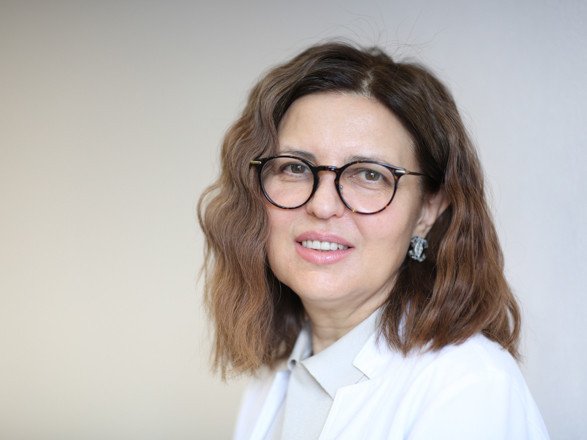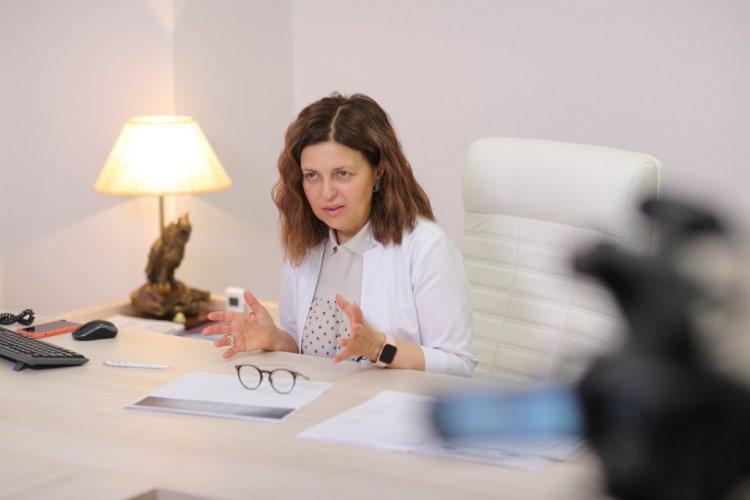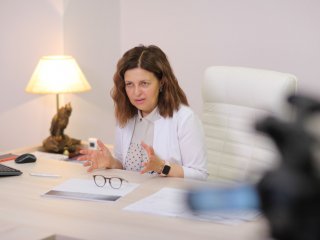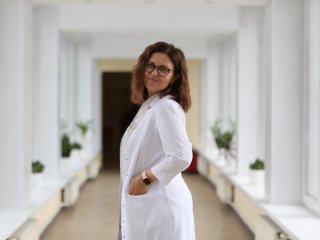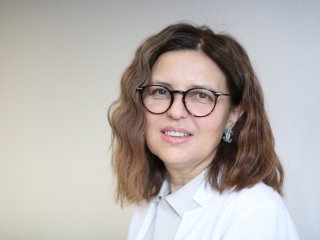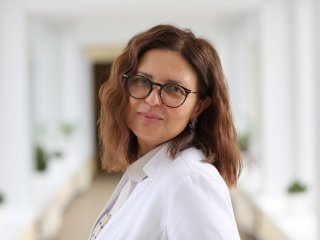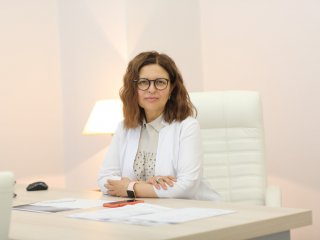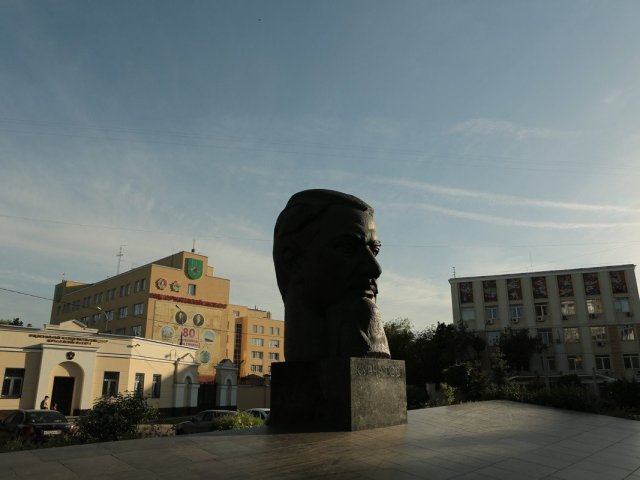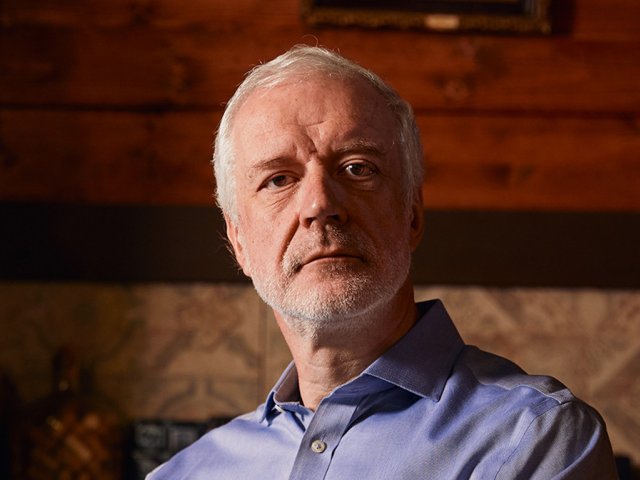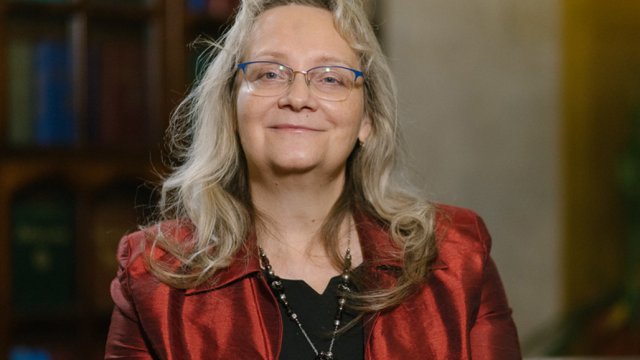Is it possible to vanquish ageing and not to fall ill? What factors lead to agility and can we cancel them? Commentaries by O.N. Tkacheva, director of the Russian Gerontology Research Clinical Center at the Pirogov Russian Research Medical University, chief geriatrician of the Russian Health Ministry.
– Olga Nikolayevna, you have been the chief geriatrician of Russia since 2015. In 2018, President Vladimir Putin promised long life to us having ordered the physicians and scientists to concentrate on solving the problem of the citizens’ life expectancy. Does this decision of the president scare you? I expect an honest answer.
– Not at all, as life expectancy has been growing globally over the past decades rising by about 3 years each decade, i.e. the average life expectancy has increased by 30 years over the past 100 years.
Naturally, it happens due to rapid development of technologies, medicine, pharmaceutical production, as well as due to the rise in quality of life in general, comfort, improvement in water and food supply, all that makes our life safer. The importance of healthy lifestyle and preventive measures becomes increasingly clearer. By the way, it stands to mention in the context of coronavirus infection that vaccination has made a substantial contribution to the rise in life expectancy. That is why when people ask whether they should get vaccinated or not, the answer is definitely yes. Vaccination is a preventive measure against contagious diseases, while the prevention of non-contagious diseases is the control over factor of risks related to development of these diseases.
– Olga Nikolayevna, we can say that the mankind is definitely becoming older. However, can we say that the mankind becomes healthier?
– It is a very good question. Dwelling on the topic of rise in life expectancy of the population, we consider and forecast different variants of what may happen. One of them is about the rise in life expectancy, accumulation of diseases associated with age and the increase in the period of life with these illnesses. We are concentrated on treating diseases. However, another scenario is required – the rise in the period of active and healthy life, which is achieved by way of prophylactics. The world follows this very way today.
We are moving along the way envisioned by the good scenario. The period of life with diseases remains table. The period of active life is rising. The evidence of it can be found in old movies: A 40-year-old person of postwar years looks obviously older than our contemporaries of the same age.
Olga Tkacheva
– Yes, for many people life only starts at this age…
– Thus, we see that the period of active life is increasing, while ageing is slowing down. The people strive for being active and keeping youthful appearance. While term healthy ageing, i.e. ageing without disease, has been used before, now it has given way to notion successful ageing. The successful ageing suggests healthy appearance, striving for something new and life-long personal development.
– Perhaps, we should refuse from term ageing, if the person is healthy and is active in personal development, shouldn’t we?
– Unfortunately, we are not immortal, and talking about immortality seems fantastical and speculative to me. We ought to set realistic tasks, the ones that can be accomplished. However, one should understand that new approaches, technologies and knowledge are required to accomplish them. The life expectancy depends upon genetics. There is a factor of heredity, as far as longevity in the family I concerned. The results of scientific research show that longevity in inherited maternally.
– Olga Nikolayevna, what do you think about theories saying that ageing is a sort of program breakdown, so if we fix the program, we will stop becoming older, like some trees which live for 1,000 and more years?
– So far, I see no grounds for thinking about infinity of life and immortality. It seems to me such an idea does not look good even from the point of view of human development and philosophy of life. Ageing is a preprogrammed process to some extent.
– Natural?
– Yes, natural. However, the ageing rate may be different. The process may either accelerate or slow down. There is term negligible ageing, which means that a person enters a certain age limit and almost stops becoming older. These are people at the age of over 90 as a rule.
There are very many theories of ageing. All of them have their own strengths and weaknesses. None of them is an indisputable one which everybody agrees with. It means that the process of ageing is very complex. Yet, all of the theories have one common principle. Yes, mistakes are made, yet do we correct them or not? Does the error correction system work or not?
If the breakdown occurs on the cellular level, the organism must correct it on its own. However, at some moment the systems of recognition and protection fail and the problem remains. The errors are being accumulated, while the functions of human organism change. This is how ageing occurs. The mistakes may be made in the field of metabolism, on the level of systemic inflammation, immune or hormonal systems. It is important to learn how to activate the program of error correction.
Over 500 such genes are responsible for ageing. There genes of ageing and anti-ageing. It means that we have genes which promote the development of age-associated diseases and consequently ageing, and the ones which, on the contrary, protect human organism from disease and ageing.
It turns out that protective genes are extremely important. We live sometimes getting injured, consuming unhealthy food and being exposed to negative impact of the environment. It is important to have our internal systems tuned to protection and error correction. So, I think that we should follow the way of maintaining and improving these systems. We ought to carry our scientific research and develop new approaches to treatment.
– In what way can we do it? How can we promote the improvement of error correction system?
– In future, genetic engineering technologies are to be developed. At present, we can interfere with this process medicinally. Actually, we treat the diseases in such a way as to help the organism to correct the mistake. The technologies will be probably modified and improved, while we may learn how to activate protective genes and deactivate the ones destroying the organism. I am a physician, clinician, so I see patients who suffer from early ageing and the ones who enjoy delay in ageing. I see age-associated diseases and know what medications can help u to cope with these disorders. However, it is absolutely obvious that the task of combatting ageing lies in the field of translational medicine.
Today, we have the results of very interesting fundamental studies and experiments, as well as scholar papers which show that it is possible to prolong the life of, say, mice by 30% and more of their average life expectancy. It is serious increase indeed. However, we have to learn how to use these achievements in clinical practice for treating people.
It is not easy, as human diseases are progressing in a certain period of time, and we can fix only some endpoints. As for ageing, this process lasts for the person’s whole life, so the respective research should also be life-long. That is why we have only the results of experimental studies for mice, as the period of them amounts to just three months.
In observations with participation of human patients we can assess only biological age of a person, not the one specified in the passport, in order to find out what impact our interference has on the age of the patient.
– Does the presence of disease always have an impact on life expectancy?
– These factors are by far not always interrelated. For instance, an elderly patient may suffer from many diseases and regularly take medications, yet be in good physical shape, work, attend concerts, take walks, go in for Nordic walking, etc. On the other hand, another patient, who is even younger than the first one according to his passport data and looks healthier with regards to number of diseases that he/she suffers from, may show signs of dementia or even disability. It is because he/she is biologically older than the first one and therefore suffers from muscular atrophy being unable to attend to him/herself. One should not mix diseases and ageing. Geriatricians know how to diagnose these conditions and can distinguish ageing problems from diseases.
– Olga Nikolayevna, let us talk about breakdowns in human organism which occur most often. It is clear that these problems include cancer and cardiovascular disorders that you directly deal with as a scientist. To what extent are these problems relevant for our country and mankind in general? What conclusions do you come to in the course of this research?
— Well, oncological pathology I really one of the ageing variants. The control over cell division is lost, and pathological cells start dividing rapidly and uncontrollably. In case of cardiovascular diseases, on the contrary, replicative activity of the cells is reducing. Pathogenesis of cardiovascular diseases is largely related to development of arteriosclerosis, i.e. increase in rigidity of the vascular wall. Atherosclerosis means formation of fatty plaques in the blood vessel wall, while arteriosclerosis is the fibrosis of the vascular wall. When it becomes very dense, vascular wall features a lot of connective tissue.
Both conditions lead to the fact that organ and tissues do not get adequate blood supply and began functioning in the wrong way. Myocardial blood supply becomes impaired which results in development of ischemic heart disease. Impaired blood supply of brain lead to reduction in saturation of cells with oxygen and therefore development of cerebrovascular and neurodegenerative conditions including Alzheimer’s disease.
On the background of ageing and accumulation of errors, the syndrome of systemic inflammation starts, and the level of C-reactive protein rises. This inflammation is not related to infectious agents when it has an acute form. Long and sluggish inflammation, or smoldering one, is one of ageing mechanisms.
– Can we say that the new coronavirus infection may also contribute to ageing process?
– Certainly, we can, as acute inflammation on the background of COVID infection is transformed into autoimmune processes, and the organism starts taking protective measures against its own cells, instead of coronavirus. In general, any autoimmune process accelerates ageing at the expense of this inflammatory one.
Here, we again come back to our conversation about ageing theories. Inflammatory mechanism is one of them. Another theory is related to metabolism. The followers of this theory say that the reason behind ageing lies, for instance, in peripheral tissues’ lack of sensitivity to insulin. Insulin is a very powerful anabolic hormone. The syndrome of insulin resistance can be easily recognized clinically. People with abdominal obese are actually the patients suffering from insulin resistance syndrome and early vascular ageing. The same is true for the patients suffering from type II diabetes mellitus. Diabetes I the model of early ageing. You will never diagnose diabetes in patients who are 100 years old. Moreover, they do not suffer from obesity a as rule. Well, they may suffer from light overweight or obesity of the 1st grade. Patients with morbid obese or severe form of diabetes never live to the age of 100 years.
– Why do patient feature different scenarios of ageing?
– People are different in biological parameters, habits, life stories and diseases. Besides, there are different models of ageing. In some patients, infarction or apoplexy develops, others suffer from Alzheimer’s disease, and still others show the signs of cancer, chronic obstructive lung disease (COPD) with emphysema or pulmonary fibrosis. There are the ones suffering from deforming osteoarthritis or osteoporosis. Many people have several diseases. All variants intertwine, yet initially there may be some common mechanisms as to the development of this or that pathology.
Geriatricians say that we must take active measures earlier, at the stage when pathologic mechanisms only start being formed. Today, we deal with prophylaxis of diabetes, cancer, infarction, etc. Our task lies in detecting these general factors and preventing ageing as it is instead of age-associated diseases. Such an approach will definitely be more efficient. However, we do not know how to achieve this goal so far.
– Speaking about long-livers, you have said that they are people who do not suffer from severe form of obesity and diabetes as a rule. What other features do they have in common? Can we identify them?
– Yes, long-livers have some features in common, and they are easy to quote. We can analyze the so-called blue areas where people live long. These are Sardinia, Costa Rica, California, a well a Nicoya and Okinawa in Japan. There are many 100-year-old people in these areas. Having been to Okinawa in Japan, I visited the village of long-livers jointly with my colleagues- geriatricians. It was unforgettable and very useful experience indeed.
– How interesting!
– Yes, we even dropped in at the house of a female long-liver. Her mother died at the age of 109 years. All brothers and sisters of this woman were or had been long-livers too. She lives alone in a small house with a garden. The rooms of her house look clean and tidy. She does all housework herself having no assistants. When we dropped in at her place, she was busy having a dance lesson. Moreover, she dances every day and likes dancing a lot. In general, this woman is very active being a small, thin and mobile person. She eats little and is a very benevolent person. When I asked her about her wishes and plans, she answered, “I would like to travel and want to visit my grandson. He lives in Tokyo, and I would like to drop in at his place.”
This woman does not consult physicians. However, medical aid for long-livers is very well organized in this area. She has prosthetic teeth and has been operated on for cataract. He has had artificial lenses installed and now can boast of excellent eyesight.
These are very important protective technologies in the field of geriatrics. Eyesight deteriorates with age which results in rapid ageing. Thus, vision should be restored as early as possible. It is a very important factor that prolongs life. He would have hardly lived to the age of 100 years being unable to see and chew.
Social activity is also an essential factor. This village of long-livers features a very friendly atmosphere. The woman I am talking about spends a lot of time on the open terrace of her house communicating with neighbors.
– Let us speak about the contribution that your gerontology center makes to the process of solving all these problems.
– The specialists of our center carry out research with respect to two areas of studies. The first topic is medicine of ageing. We can treat elderly people and know how to do it. Thus, we know how to maintain the quality of their life and prolong this very life. We employ physicians who have completed training in treating elderly people and specialize in this very field of medicine. We make surgical operations on patients at the age of 90 year and older ones. Recently, we have operated on a 96-year-old patient having her hip joint prosthesis installed. When our center worked as coronavirus hospital, we had patients at the age of 95 and 97 years. Moreover, we treated them successfully, and they recovered.
The other area of research deals with gerontology, the science of ageing. We deal exactly with translational studies in the field of ageing, and in this sense our center is a unique and the only one in Russia. We do not work with experimental animals, but deal with clinical practice trying to assess the achievements obtained in the course of experiments and translate them into clinical practice. This very activity is called translational medicine.
We have a number of research laboratories including the ones of cardiovascular ageing, metabolic ageing, endocrine age-related disorders, ageing of musculoskeletal system, clinical pharmacology and pharmacotherapy. We deal with studying medications and the issues related to their impact on the ageing processes. We keep our own register of long-livers and super-long-livers. We study the models of healthy ageing. It is very important to carry out such research in Russia, as each country has such factors of its own as traditions, nutrition features, way of life, genetics, etc. These factors have a serious impact on the state of health of local population and mechanism of ageing. We just cannot translate unconditionally the results of studies obtained in other countries.
For instance, intestinal microbiota and ageing is a new and very promising area of scientific research. Millions of microorganisms live in human intestines, but we know by far not everything about them.
When new methods of studying intestinal microbiota were developed, we saw that it consisted of many microorganisms, each with its unique set of genes. They excrete a lot of biologically active agents which later have an impact on our health and life expectancy. Today, it is already known that the microbiota of long-livers has its own typical features. In the past, Mechnikov would say that one should drink kefir to live long. It turned out that he was right to some extent. The food that we eat makes serious influence on the length of our life.
– Olga Nikolayevna, what else should we do to prolong healthy life apart from consuming fermented dairy products?
– First, you ought to remember one simple truth: the ageing process begins from intrauterine period. A baby has not yet born, but its ageing rate is already predetermined. This rate depends upon two factors: the unique genetic features of the fetus and health of its mother, i.e. her arterial blood pressure during pregnancy, metabolism, placental blood flow, blood supply to the placenta, etc. That is why when married couples plan having a baby, it is very important for the woman to lead a healthy lifestyle.
Anyway, the earlier we understand that healthy lifestyle is an essential component of longevity, the better. What I will tell you now may look commonplace, yet it is true nevertheless. I mean that one ought to quit smoking, not to drink too much alcohol, control his/her weight, arterial pressure, cholesterol figures and go in for physical activity. One can hardly live long without it. Move and lead active lifestyle if you want to live long. Nothing better has been yet invented. All anti-ageing programs that are sold at a high price somewhere in elite Swiss clinics include, among other ones, the drug administration methods for raising the muscle mass and strength. The less the mas and strength of your muscles is the quicker you will become older. Muscles are an endocrine organ which excretes a lot of biologically active substances. When a person is moving, very many anti-inflammatory mediators are formed.
Nutrition is equally important. If a person consumes unlimited quantities of food and prefers unhealthy food products, he/she can hardly become a long-liver. It has been proved that one must eat 500 grams of raw vegetables and fruit a day minimum. They contain cellulose, the material which is good for cleansing organism. The rations ought to contain sufficient amount of proteins, fats and carbohydrates. The diet should be well-balanced.
One ought to control the content of vitamin D, especially with age: the older a parson is, the smaller amount of vitamin D is produced by his/her skin. So elderly people should take additional doses of vitamin D. One ought to control the level of vitamin B, as the shortage of it comes with age due to malabsorption of gastrointestinal tract.
It is a known fact that profession has an impact on life expectancy. For instance, music conductors live longer than other people. In general, we know that the higher the level of education is, the longer a person lives. On the one hand, basic education makes a difference, but on the other hand, as I have already mentioned, one ought to learn something all the time. Being lazy is absolutely out of question. Every day, one must learn a new thing or two.
– For instance, I have learned many new things today and therefore deserve praise. What role does resistance to stress play here?
– Stress is an interesting phenomenon. Being exposed to stress for a long period of time causes anxiety and leads to unfavorable consequences. Short-term, yet strong stress is also detrimental to health. However, one should distinguish real stress from situations that we perceive as stress, which are actually incentives to development and activation of adaptation processes, like excitement before public presentation for example.
The resistance to bad types of stress and ability to get out of stress state quickly is of great importance. At present, the specialists of our clinic offer consultations to relatively healthy people for the purpose of assessing their biological age and working out individual plans aimed at preventing them from getting older. Psychologists necessarily take part in these sessions. They identify the patients’ resistance to stress. We underestimate the impact of stress upon ageing and development of diseases. If a person dives headlong into the state of stress, it leads to regulation disorder and diseases. The ability to keep one’s temper and control one’s psycho-emotional state is of great importance. A is known, despair is a deadly sin which makes one’s life shorter.
